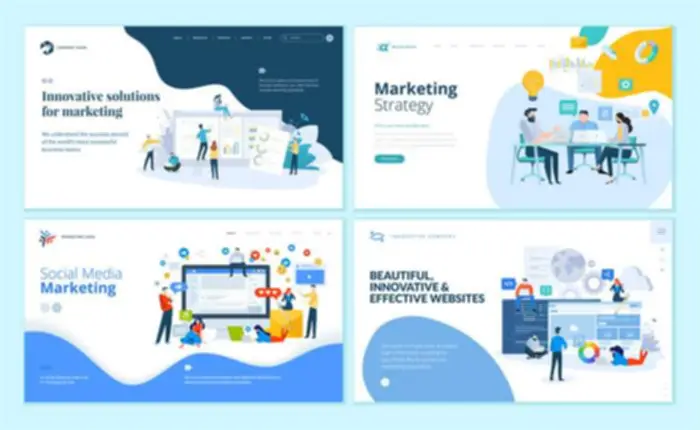What’s A Private Cloud? Definition And Functions 23 januari 2025 – Posted in: Software development
They enable scalability and include pay-as-you-go companies however supply added security and management. Whereas non-public cloud options offer quite a few advantages organizations face a quantity of challenges when adopting this technology. The largest disadvantage of private cloud for organizations is that they come with higher prices, particularly if you must purchase and set up new hardware.
A characteristic of on-premises personal cloud options is that the group itself is liable for sustaining and managing the cloud infrastructure, together with hardware and software. With other private cloud options, such as hosted or managed private clouds, these activities are handled by the third-party service supplier. Instead, they sell a spectrum of different hardware, software and services that prospects can use to deploy a private cloud. Typically, the pricing for these merchandise is not clear on vendor websites, and patrons are prompted to speak https://www.globalcloudteam.com/ with a salesman.
Private cloud computing infrastructure is a class of cloud computing that provides comparable benefits to public cloud methods, corresponding to self-service and scalability, however it does so through a proprietary framework. In contrast to public clouds, which cater to multiple entities, a private cloud is specifically designed for the requirements and goals of 1 group. A Private Cloud presents organizations the flexibleness and scalability of the cloud computing whereas ensuring the privacy and management needed for the dealing with sensitive information. By understanding the benefits, use instances and concerns of the implementing a non-public cloud companies can make knowledgeable decisions that align with their IT methods and regulatory requirements. On-premises non-public clouds are internally hosted in your knowledge center and managed by your IT staff.
Managed Cloud Hosting
Private cloud solutions are usually automated and require minimal handbook intervention, which helps to handle complex duties and workloads. Personal clouds do require some initial funding and ongoing management expertise. Nevertheless, for organizations that prioritize the last word safety and control over their information whereas nonetheless looking for the agility and scalability of cloud computing, non-public clouds offer a compelling resolution. Non-public clouds rely on a handful of varied technologies, however understanding how virtualization works is the key to understanding how non-public clouds work. A personal cloud makes use of virtualization know-how to combine assets sourced from physical hardware into shared pools.

For occasion, one IT division in a northeastern US state (which will stay nameless) spent millions building a state-of-the-art personal cloud. “Oh, we now have a number of divisions that wish to use it for their cloud deployment models apps,” was how a consultant explained its use, noting how amazingly wasteful this is. Personal cloud combines virtualization hosts, storage and community units, all into one unified platform. Cost is of course a central concern as you create plans for a personal cloud deployment. Cloud providers share system health metrics, together with software and server CPU, reminiscence, request price, error price, and common response occasions.
Private Cloud Use Cases: 6 Ways Non-public Cloud Brings Value To Enterprise Business

Hybrid cloud companies lengthen your private cloud computing mannequin into the basic public cloud. For example, your non-public cloud functions can entry public cloud sources when there is a spike in site visitors that your knowledge heart can’t deal with. You also can use hybrid cloud computing companies to transition easily from non-public cloud environments to public clouds. A personal cloud supplies cloud computing services exclusively to licensed customers over the internet or a non-public internal network. Not Like a public cloud, its sources are neither public nor shared—they’re devoted, providing a higher stage of security and control. At the same time, companies benefit from advantages like scalability and elasticity, they usually can operate their private cloud either on-premises or in a data heart.

Right Now, most enterprise organizations mix hybrid cloud with multicloud, which refers to utilizing different services from multiple cloud service providers. A multicloud setting helps clients keep away from vendor lock-in and allows them to run the most optimum computing environment for each workload. Massive enterprises also rely on this mannequin to offer tailored IT sources that may be flexibly adapted to inside necessities. A good instance of a non-public cloud system is phoenixNAP’s Managed Private Cloud (MPC), a performance-oriented, compliance-driven solution designed to meet the precise calls for of mid- to large-sized enterprises. Created to be adaptable and suitable for a full vary of infrastructure-as-a-service needs, our MPC could be built as an entirely personal infrastructure environment or utilized as a half of a hybrid cloud answer. In a personal cloud environment, you may have less visibility into every workload’s performance requirements, and workloads also can change more quickly as users begin and cease VMs and functions.
Maximize the potential of hybrid cloud know-how with AI-driven options. Explore how one can optimize your cloud infrastructure with IBM’s hybrid cloud offerings or entry skilled insights to reinforce your generative AI strategy. Non-public cloud combines many of the advantages of cloud computing—including elasticity, scalability and ease of service delivery—with the access management, security and useful resource customization of on-premises infrastructure. Private cloud storage allows corporations like finance establishments to protect sensitive knowledge and control who has access to that information. For occasion, solely these administrators or staff members who’ve been granted permission can interact with buyer data by way of a non-public connection like a virtual personal community (VPN).
As a leader in hybrid cloud solutions, IBM helps shoppers customize the most effective non-public cloud setting to satisfy their needs. For instance, IBM Cloud® Digital Server for VPC provides fast-provisioning compute capacity with the highest community speeds and most safe, software-defined networking sources out there on the IBM Cloud. Non-public cloud plays a crucial part in a hybrid multicloud setting, which supplies organizations the control and agility to choose on the best cloud environment for each workload. For instance, with a hybrid cloud technique, a bank can retailer delicate buyer information in a private cloud and use a public cloud to develop and check new functions, like a loyalty program for its cellular platform. Because of their limited access, private clouds are excellent environments for companies with information safety, compliance or regulatory issues.
- The non-public cloud prioritizes management, compliance, and customization to align seamlessly with the precise business wants of each group.
- Hosting a business’s mission critical apps on this platform actually allows greater piece of mind – yet at the next worth point.
- For instance, generative AI fashions can strengthen safety by analyzing historic data and identifying patterns and anomalies in personal cloud infrastructure that reveal threats in real-time.
In effect, your business simply cordons off a section of the third party’s equipment and infrastructure. This saves your business the money outlay of building/buying this extra tools and infrastructure, yet additionally offers (in concept, at least) the same stage of privateness and security as would a really in-house deployment. Ideally, a private cloud permits businesses important value savings over legacy hardware-based deployments. It additionally permits far larger flexibility, and – in contrast to a public cloud – much higher security and privacy. In a non-public cloud, virtualization lets you share assets or functions among your whole company simultaneously.
Massive data and the Web Software Сonfiguration Management of Issues (IoT) have made private cloud storage very important to companies, particularly in an era the place it could troublesome to appraise the worth of a byte until long after it was created. Non-public clouds use something referred to as software-defined storage (SDS) to archive and sort knowledge. One of the extra frequent SDS solutions for private clouds—particularly these deployed using OpenStack®—is Ceph. Ceph is the open source project behind Red Hat Ceph Storage, and it works nicely with clouds because it unifies object, block, and file storage right into a single useful resource pool.
